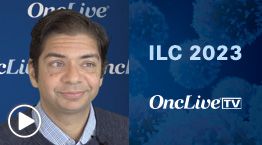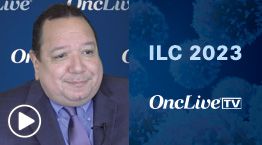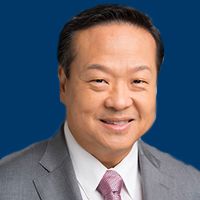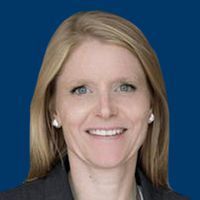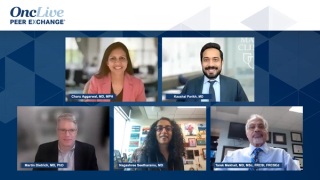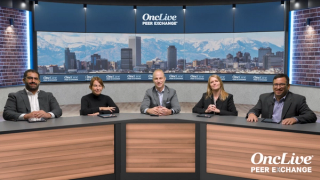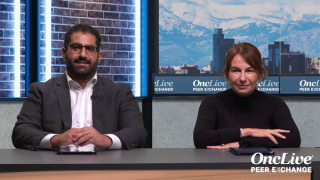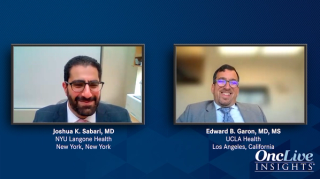
Lung Cancer
Latest News
Latest Videos

CME Content
More News
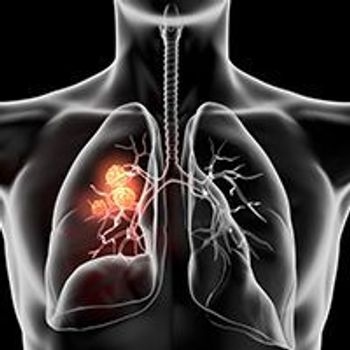
Neoadjuvant treatment with nivolumab plus platinum-based chemotherapy followed by adjuvant nivolumab increased pathological complete response rates and prolonged survival compared with neoadjuvant chemotherapy alone in patients with resectable stage IIIA/B non–small cell lung cancer.
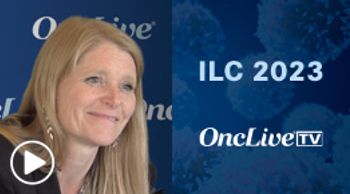
Solange Peters, MD, PhD, discusses current understandings of mechanisms of resistance to immunotherapy in non–small cell lung cancer.

Positive event-free survival data from the phase 3 AEGEAN, NEOTORCH, and KEYNOTE-671 trials add further evidence to the benefit of perioperative immunotherapy in early-stage non–small cell lung cancer but have yet to show clear biomarkers of response beyond PD-L1.
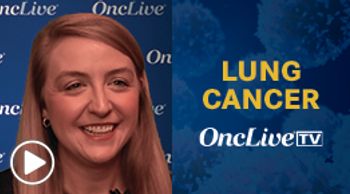
Logan Roof, MD, discusses findings from a study investigating trends in lung cancer mortality across different sociodemographic populations and locations in the United States between 1999 and 2020.

Pasi A. Jänne, MD, PhD, details common EGFR mutations in NSCLC, the importance of testing for EGFR mutations in all patients, the clinical implications of overall survival data for adjuvant osimertinib from the ADAURA trial, and ongoing trials examining combination therapies to potentially improve upon the use of single-agent osimertinib.
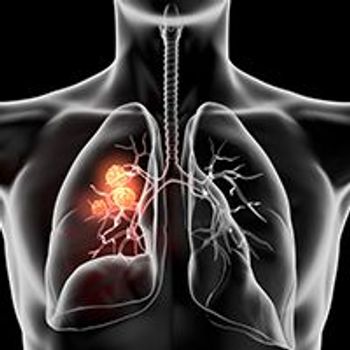
Sugemalimab plus chemotherapy demonstrated statistically significant and clinically meaningful improvements in progression-free survival and overall survival vs placebo plus chemotherapy for the first-line treatment of patients with stage IV non–small cell lung cancer irrespective of PD-L1 expression level and tumor pathological type.

Angel Qin, MD, contextualizes the non–small cell lung cancer ADAURA trial, in which patients with EGFR-mutated non–small cell lung cancer who received adjuvant therapy with osimertinib achieved a 5-year overall survival rate of 85% vs 73% in those who received placebo.
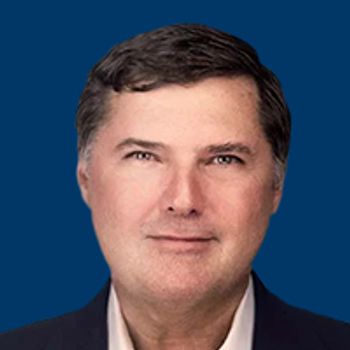
The European Medicines Agency’s Committee for Medicinal Products for Human Use issued a negative opinion on the conditional marketing authorization application for adagrasib for the treatment of patients with KRAS G12C–mutated advanced non–small cell lung cancer.
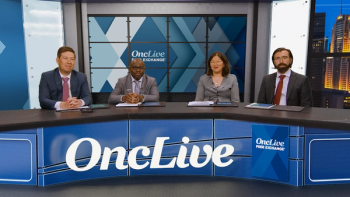
Faculty discuss real world data for treatment approaches using chemotherapy in combination with immunotherapy in extensive-stage small-cell lung cancer.

Expert oncologists present the case of a 45-year-old woman with synaptophysin-positive, extensive-stage small-cell lung cancer with a Ki-67 score of 90%, who is treated with carboplatin, etoposide, and atezolizumab in the first-line setting, and provide their initial impressions.
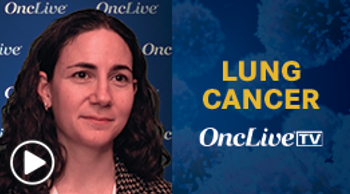
Sarah Goldberg, MD, MPH, discusses the design and key objectives of an ongoing phase 1a/b study of VIC-1911 as a monotherapy and in combination with sotorasib in KRAS G12C–mutant non–small cell lung cancer.
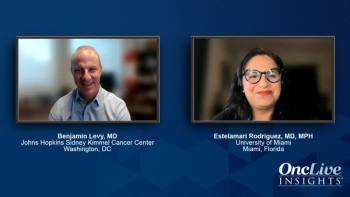
Closing out their discussion on uncommon EGFR mutations in non–small cell lung cancer, Benjamin Levy, MD, and Estelamari Rodriguez, MD, MPH, consider how the treatment paradigm will continue to evolve.
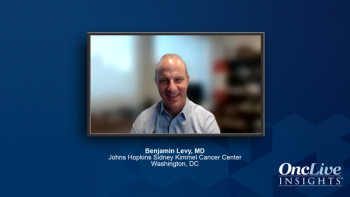
Benjamin Levy, MD, and Estelamari Rodriguez, MD, MPH, reflect on their experience managing real-world patients with uncommon EGFR mutations in non–small cell lung cancer.

China’s National Medical Products Administration has accepted a supplemental new drug application seeking the approval of toripalimab in combination with platinum-based chemotherapy for the first-line treatment of patients with extensive-stage small cell lung cancer.

Ben Levy, MD, reviews the 5-year update and clinical implications of the PACIFIC study which evaluated consolidation immunotherapy in unresectable early-stage NSCLC.
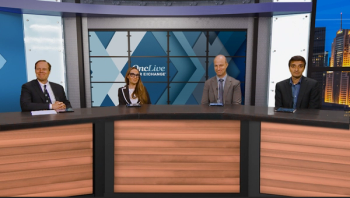
Expert panelists discuss the characterization of patients with unresectable, early-stage NSCLC and what their standard treatment approach is for this patient population.

The third-generation EGFR TKI lazertinib displayed a significant efficacy improvement compared with gefitinib in patients with EGFR-mutated advanced non–small cell lung cancer when given in the first-line.

Luis E. Raez, MD, discusses how findings from the phase 2 NADIM II trial inform the neoadjuvant treatment paradigm in non–small cell lung cancer.

Amivantamab-vmjw plus carboplatin and pemetrexed led to a clinically meaningful and statistically significant improvement in progression-free survival vs carboplatin and pemetrexed alone in patients with newly diagnosed advanced or metastatic EGFR exon 20 insertion–mutated non–small cell lung cancer.

Faculty discuss potential treatment approaches for limited stage small-cell lung cancer currently under investigation in the ADRIATIC and other ongoing trials.

Panel experts discuss strategies aimed at preventing and managing potential adverse events with first-line combination therapy approaches in extensive stage small-cell lung cancer.

Joseph Christopher Murray, MD, discusses the role of prognostic markers in non–small cell lung cancer and how data from the EMPOWER trials will guide future directions in the space.
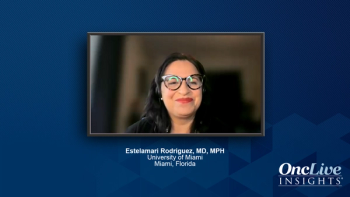
Focused discussion on uncommon EGFR mutations in non–small cell lung cancer and concurrent treatment options in this setting.

Experts Benjamin Levy, MD, and Estelamari Rodriguez, MD, MPH, highlight current understandings of EGFR mutation classifications in the context of non–small cell lung cancer.

Jarushka Naidoo, MBBCh, discussed the clinical significance of datasets from several phase 3 trials presented at the 2023 ASCO Annual Meeting, including ADAURA, KEYNOTE-617, CheckMate 816, and CheckMate 9LA trials.


